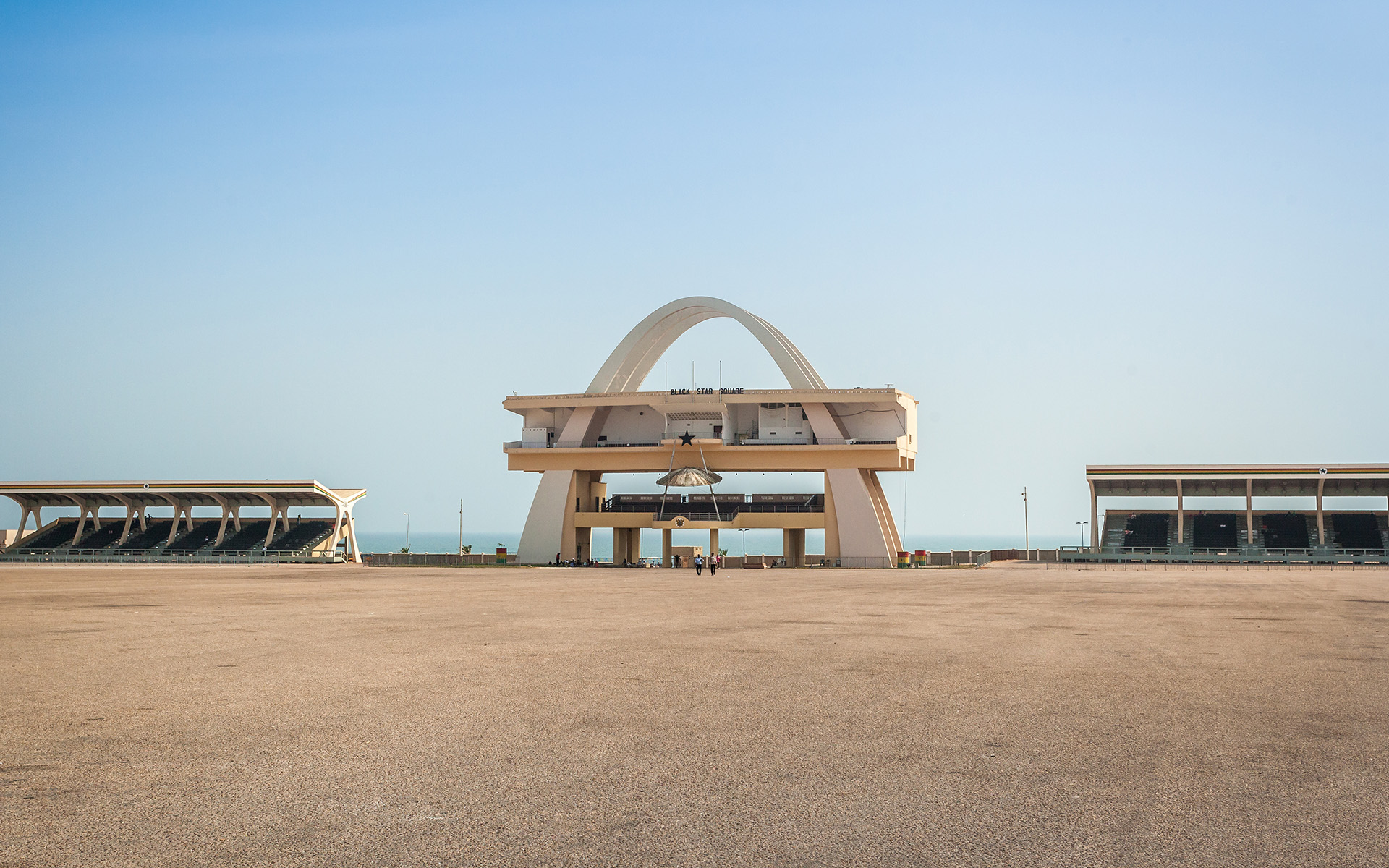Accra’s garment manufacturing industry is enjoying a renaissance, driven by disciplined public policy and a flourishing creative industry.
City Class Score
| Commercial Hubs | |
| Export Champions | |
| Mobility Connectors | |
| Climate Resilient |
Corporate HQs, MNC presence, branded outlets, hotels, manufacturing, start-up ecosystem,
transport linkages, population, and income.
Go to the class information
Manufacturing, industrial parks, export share and share change by category, air and port
infrastructure, freight time to market, trade agreements, and expert interviews.
Go to the class information
Passenger traffic, flight connectivity, air-cargo flights, port infrastructure, container
ship sailings, and major road networks.
Go to the class information
Coastal and river flooding, extreme rain, extreme heat and humidity, cyclones, and water
scarcity.
Go to the class information
Ghana’s beachside capital, Accra, is a cultural hub for the region, steeped in
historic charm and a thriving arts scene. The Jamestown Lighthouse provides panoramic views of the
Atlantic Ocean, but it’s in the city’s galleries, museums, and markets where visitors discover the
rich tapestry of Ghanaian culture. Makola Market tempts the senses with dishes like jollof rice and
fufu, a starchy staple often paired with rich, flavorful soups. Shoppers can also find a colorful
array of locally designed textiles and fashions. Accra is home to a growing number of artists’
studios, enhancing Ghanaian design’s reputation on the global stage, and this design renaissance is
fueling a revival in the traditional garment manufacturing industry.
Accra is one of
several West African cities, including Abidjan and Lagos,
poised to benefit from rebalancing global supply chains. However, success is not guaranteed, as
Accra currently ranks lower than its peers in North Africa and in larger Asian textile exporters,
such as Bangladesh and Sri Lanka. Accra’s story is just beginning, and could indicate how West
African cities perform overall. The city also may benefit from growth rebalancing and rising
consumer demand from neighboring countries, but this outlook could change, especially in light of
worsening climate change.
The manufacturing sector in Accra is experiencing a renaissance
after facing challenges during the past few decades. The city’s garment industry thrived in the
1970s, but later struggled due to an influx of cheaper imports. Nevertheless, the government cracked
down on unfair trade practices and attracted more value-adding investments from China. As a result,
Accra’s garment manufacturers have enjoyed rapid growth, exporting the country’s traditional kente
cloth — Africa’s iconic fabric — both regionally and globally. The success of Ghanaian fashion
designers also spurred the growth of domestic manufacturing, alongside an expanding range of local
brands.
The African Growth and Opportunities Act with the United States provides duty-free
access to the American market, laying a solid foundation for further growth. The city’s Adjabeng
Free Trade Zone Enclave welcomes new garment manufacturers, including investments from US and UK
joint ventures. A young, English-speaking workforce is an added advantage. Additionally, Accra’s
proximity to Europe positions it as a promising nearshoring opportunity, similar to Tangier.
While Accra boasts port and air cargo transport infrastructure comparable to its West African peers,
it still lags behind export competitors in North Africa, as well as Addis Ababa and Nairobi.

